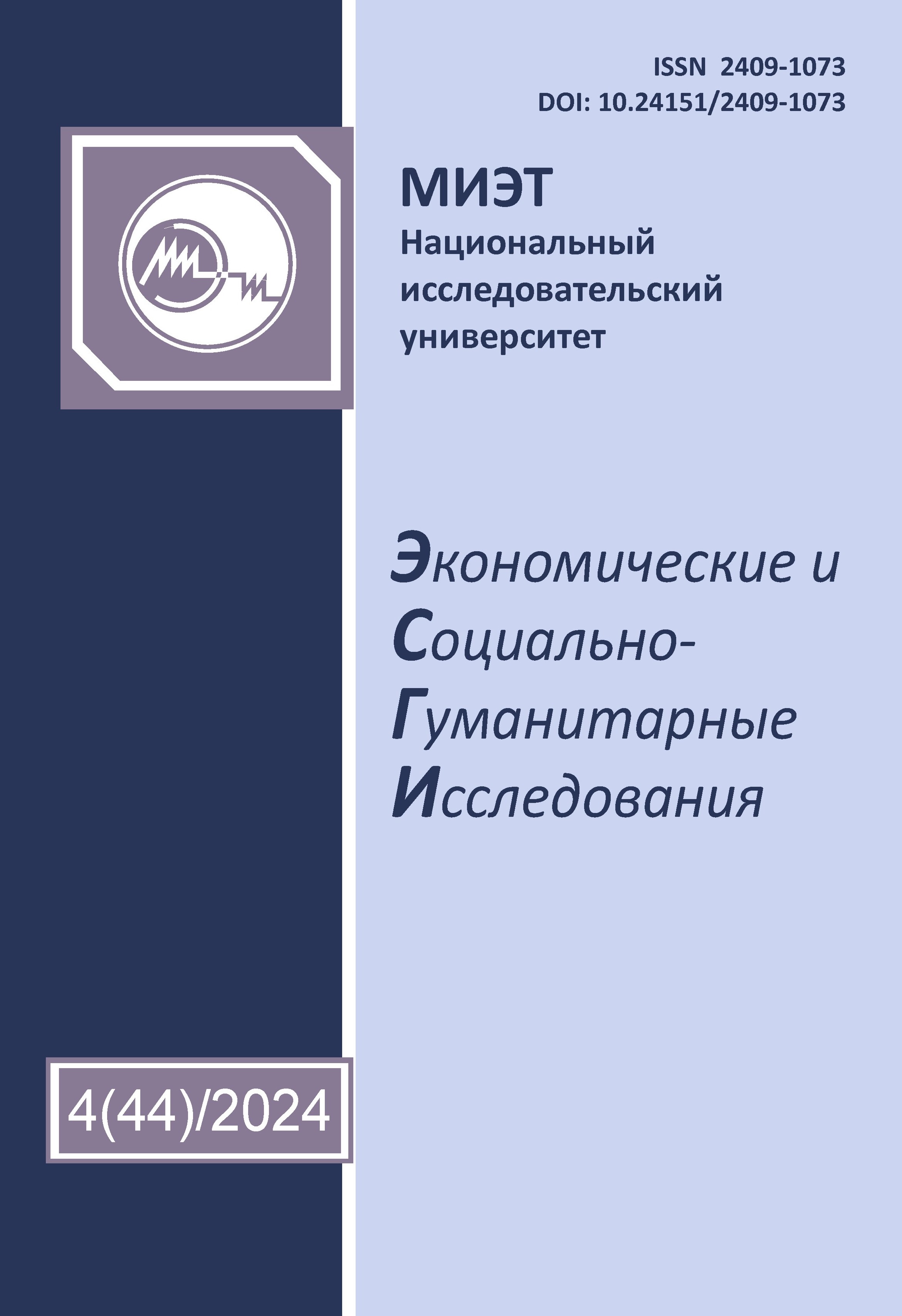employee
Russian Federation
UDC 005
The author performed the analysis of modern interpretations of the data that make up the theory and technology of knowledge management, outlining the role of explicit and tacit knowledge in the business processes of an organization. Using the method of sociological research the author revealed the resulting factors of knowledge management implementation in business process management: motivation, presence of barriers, success factors. The factor of growth of competitiveness of organizations implementing knowledge management and organizational training system for employees has been highlighted. The conclusion is made about fundamental significance of knowledge capitalization in justifying a successful business strategy and creating an organizational learning model.
knowledge management, organizational strategy, management structure, knowledge society, small business, business process, competitiveness, knowledge capitalization
1. Bogush A. I. “Knowledge Management as a Basis for the Development of Business Processes in a Market Environment”. Tendentsii ekonomicheskogo razvitiya v XXI veke: materialy IV Mezhdunar. nauch.-prakt. konf. (01 marta 2022). Minsk: Belarusian State Univ., 2022. 342—345. (In Russian). EDN: https://elibrary.ru/BNOCDX.
2. Zhityaev A. A. “Theoretical Foundations for the Formation of a Knowledge Management System”. Gosudarstvennoye upravleniye i razvitiye Rossii: vyzovy i perspektivy: sb. statey VI Vseros. nauch.-prakt. konf. (25—26 noyab. 2022). Sci. eds A. V. Yashin, A. A. Grachev. Penza: Penza State Agrarian Univ., 2022. 111—117. (In Russian). EDN: https://elibrary.ru/JJSGHN.
3. Kizilov A. N. “Business Consulting in the Management System of Small Business Organizations”. Uchet i statistika 21.1 (2024): 40—49. (In Russian). https://doi.org/10.54220/1994-0874.2024.40.60.005 EDN: https://elibrary.ru/GHHROH.
4. Kuchmezov R. A., Mestoeva E. A., Zakrailova B. R. “The Concept of Reflective Learning of University Students and Its Features”. Problemy sovremennogo pedagogicheskogo obrazovaniya 76-4 (2022): 190—192. (In Russian). EDN: https://elibrary.ru/GGNXUN.
5. Lyskova I. E. “Conceptual Basis of the Formation of the Human Resources Quality System in a Modern Organization”. Vestnik Komi respublikanskoy akademii gosudarstvennoy sluzhby i upravleniya. Teoriya i praktika upravleniya 1 (35) (2022): 87—95. (In Russian). EDN: https://elibrary.ru/IWWKAY.
6. Novikova O. S., Tinyakova V. I. “Harmonization of the Organizational Structure of Management and the Business Model of the Enterprise in the Context of Digitalization of the Economy”. Evraziyskiy yuridicheskiy zhurnal = Eurasian Law Journal. 9 (172) (2022): 499—501. (In Russian). EDN: https://elibrary.ru/NMMTPE.
7. Pligin A. A. “Psychotechnology of Knowledge Management in the Company, Ensuring the Coordination of the Competence of Specialists and the Effective Implementation of Business Processes”. Sovremennyye psikhotekhnologii v upravlenii, politike, biznese, obrazovanii: materialy Vtoroy i Tret’yey Mezhdunar. nauch.-prakt. konf. (01 iyunya 2021 — 30 iyunya 2022). Moscow: Rusayns, 2023. 108—114. (In Russian). EDN: https://elibrary.ru/JXGWUI.
8. Argyris Chris. Reasoning, Learning and Action: Individual and Organizational. San Francisco, CA: Jossey-Bass, 1982. 500 p.
9. Argyris Chris. Strategy, Change and Defensive Routines. Marshfield, MA: Pitman, 1985. 368 p.
10. Argyris Chris, Schön Donald A. Organizational Learning: A Theory of Action Perspective. New York: Addison-Wesley Publishing Company, 1978. xii, 344 p. Addison-Wesley Series on Organization Development.
11. Castells Manuel. The Rise of the Network Society. Cambridge, MA: Blackwell Publ., 1996. 556 p. Vol. 1 of The Information Age: Economy, Society and Culture.
12. Dick Robert. Learning to Communicate: Activities, Skills, Techniques, Models. St. Lucia: Interchange and Univ. of Queensland Bookshop, 1986. 308 p.
13. Grinder Michael. Righting the Educational Conveyor Belt. Ed. Lori Stephens. Portland, OR: Metamorphous Press, 1991. 248 p. Red Seal Educational Series
14. Hudson Ray. “The Learning Economy, the Learning Firm and the Learning Region: A Sympathetic Critique of the Limits to Learning”. European Urban and Regional Studies 6.1 (1999): 59—72. https://doi.org/10.1177/096977649900600105
15. Fritsch M., Koschatzky K., Schätzl L., Sternberg R. “Regionale Innovationspotentiale und innovative Netzwerke”. Raumforschung und Raumordnung 56.4 (1998): 243—250. (In German). https://doi.org/10.1007/BF03184335
16. Schmidt Suntje. Wissensspillover in der Wissensökonomie: Kanäle, Effekte und räumliche Ausprägungen. Münster: LIT, 2012. 376 S. (In German). Stadt- und Regionalwissenschaften [Urban and Regional Sciences].
17. The Knowledge-Based Economy. Paris: OECD, 1996. 45 p.
18. Willke Helmut. Systemisches Wissensmanagement. 2., neubearb. Aufl. Stuttgart: Lucius & Lucius UTB, 2001. 381 S. (In German).







